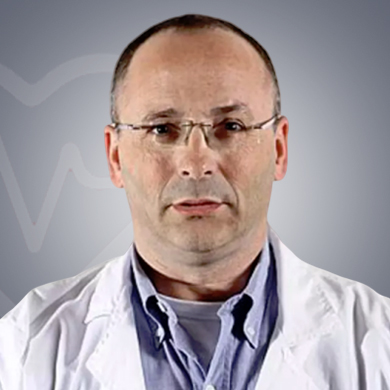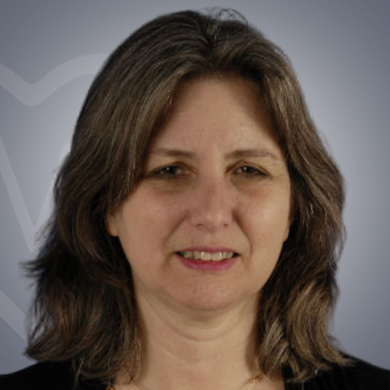
Dr. Moshe Yeshurun is a specialized Hematologist in Israel. And one of the most sought after medical specialists in Petah Tikva, Israel. The doctor has over 25 Years of experience and is associated with Rabin Medical Center.
Association and Memberships Dr. Moshe Yeshurun is part of:
Certifications :
Qualifications :
Hospital Address :
Rabin Medical Center, Ze'ev Jabotinsky Street, Petah Tikva, Israel
What is the medical expertise of Dr Moshe Yeshurun?

Dr. Pia Raanani is a specialized Hematologist in Israel. And one of the most sought after medical specialists in Petah Tikva, Israel. The doctor has over 25 Years of experience and is associated with Rabin Medical Center.
Association and Memberships Dr. Pia Raanani is part of:
Certifications :
Qualifications :
Hospital Address :
Rabin Medical Center, Ze'ev Jabotinsky Street, Petah Tikva, Israel
Please make sure to see your doctor using Telemedicine before you even board a flight
Following are some of the best Hematologists in other cities:
Given below are some of the most popular hospitals in Petah Tikva, Israel where Hematologists work:
Some of the most popular procedures performed by hematologists in Petah Tikva are:
Most common conditions performed by hematologists in Petah Tikva, Israel are:
Hematologists are internal medicine doctors who have training in disorders related to the bone marrow, blood, and lymphatic system. They may work in hospitals, clinics, or blood banks. Hematologists who practice in labs are called hematopathologists. They are well- trained in pathology, a branch of medicine that studies body tissues and the blood with microscopes or tests.
If your primary care physician has advised you to see a hematologist, it might be because you are at risk for a disease involving the red or white blood cells, blood vessels, platelets, bone marrow, spleen, and lymph nodes.
A hematologist:
A hematologist may also be known by the following names: blood disease specialist or blood doctor.
When choosing a hematologist, board certification plays a key role. A doctor might treat patients with blood disorders and conditions without being board certified in hematology. However, training, education, experience and certification establish the hematologist’s level of competence. Also, board certification tells whether the doctor has completed a training program and cleared an exam demonstrating their expertise in hematology.
This is the pathway:
• Graduation in medicine (MBBS) followed by post graduation programme (MD or DO).
• Residency training as well as certification exam in internal medicine
• More training (fellowship programs) and certification exams in hematology.
A hematologist treats conditions that involve the blood including:
A hematologist can order a wide variety of diagnostic tests, such as:
Your primary care doctor may tell you to see a hematologist if you have the following symptoms:
You might not always come face to face with a hematologist. They often work closely with your pediatrician, internist, oncologist, or other primary doctor to study your test results or to evaluate your condition. A lab technician who collects your blood sample isn’t a doctor.
They will conduct a physical exam to test the functioning of the body. In addition to tests and physical exams, you could get a lot of information at your first appointment. You may need to bring a family member or friend along with you. The person you bring can help ask questions, listen, and take notes.
Some popular procedures performed by hematologists are:
Top Medical Specialities in Petah Tikva, Israel are: